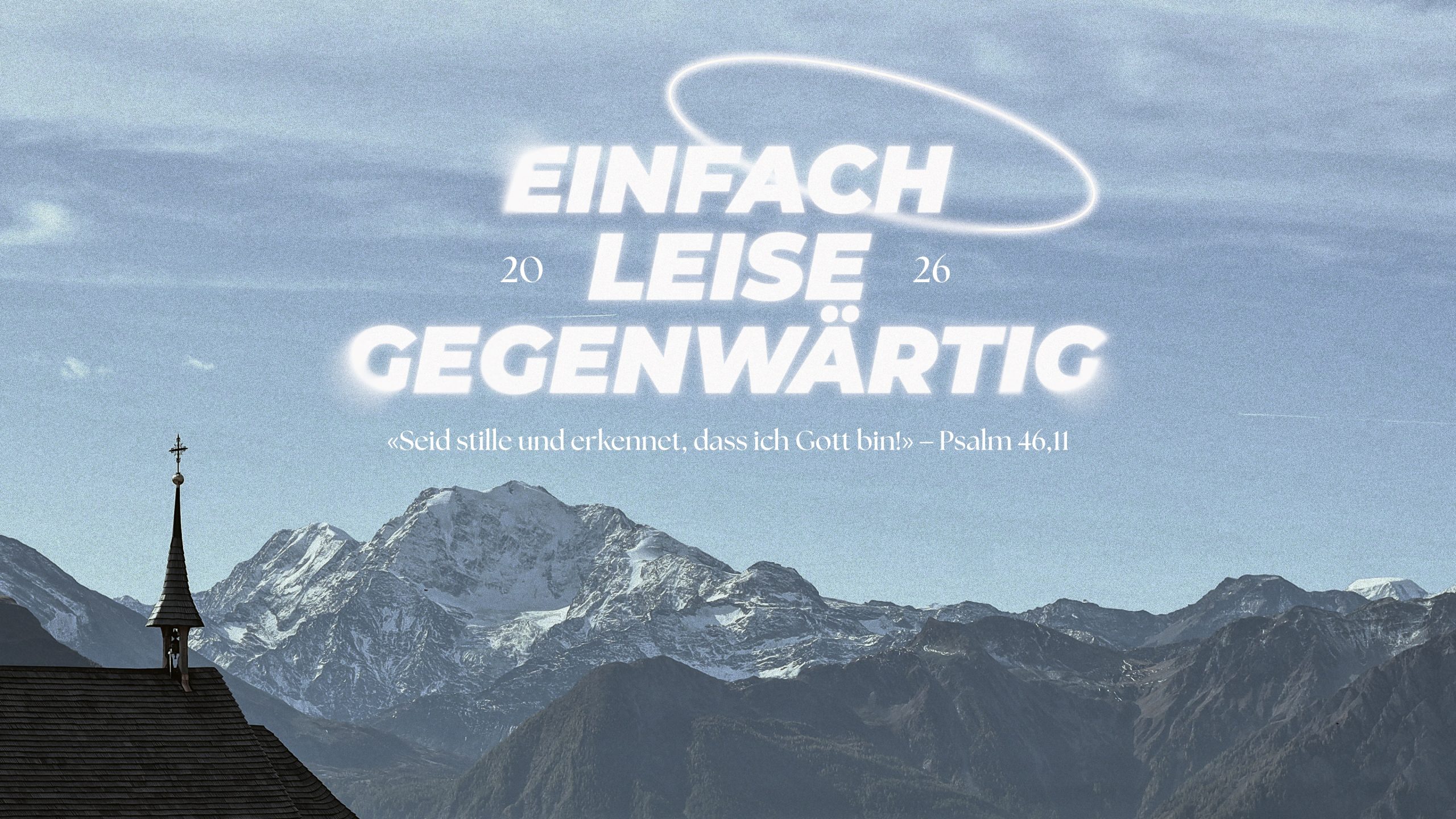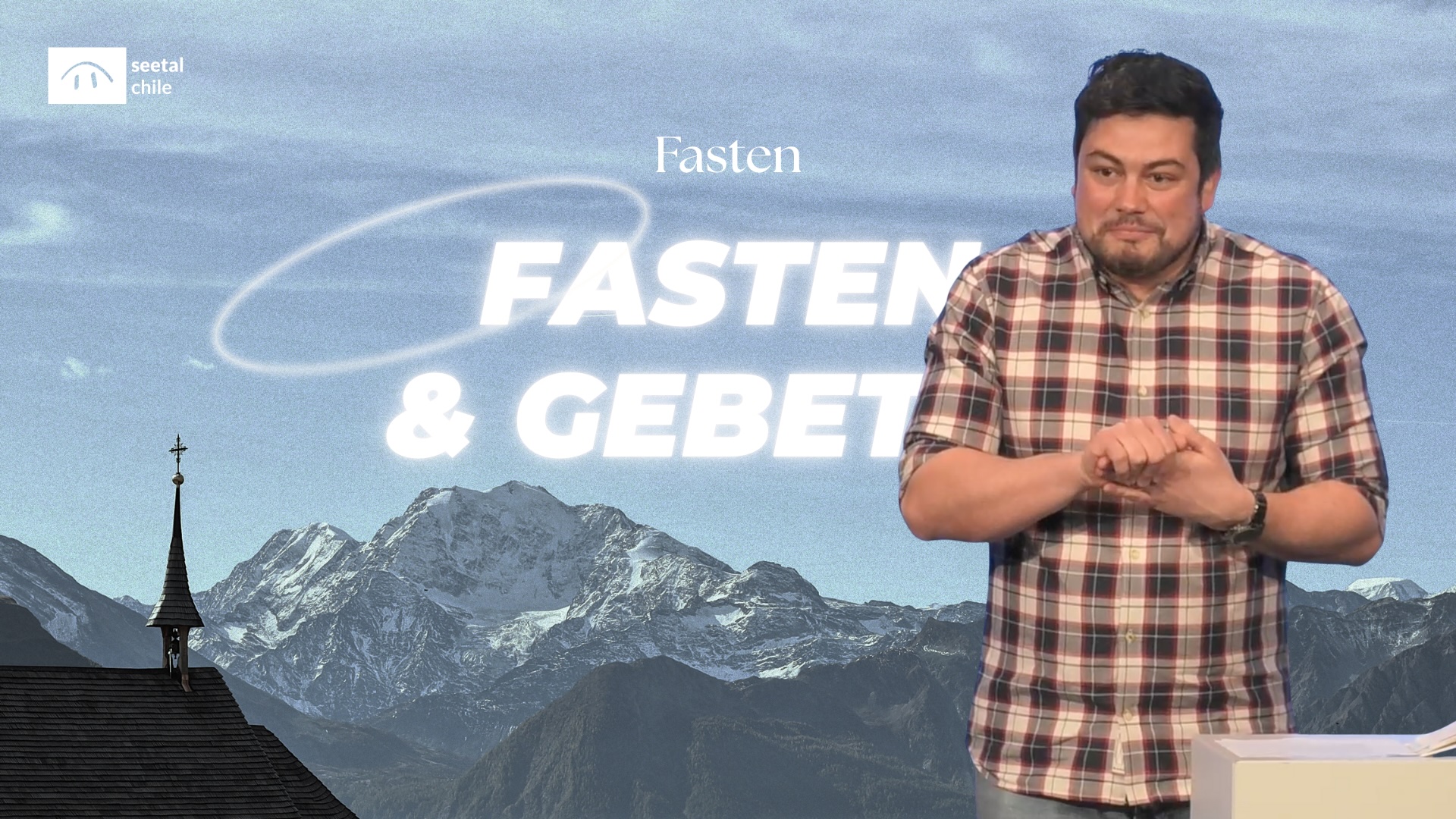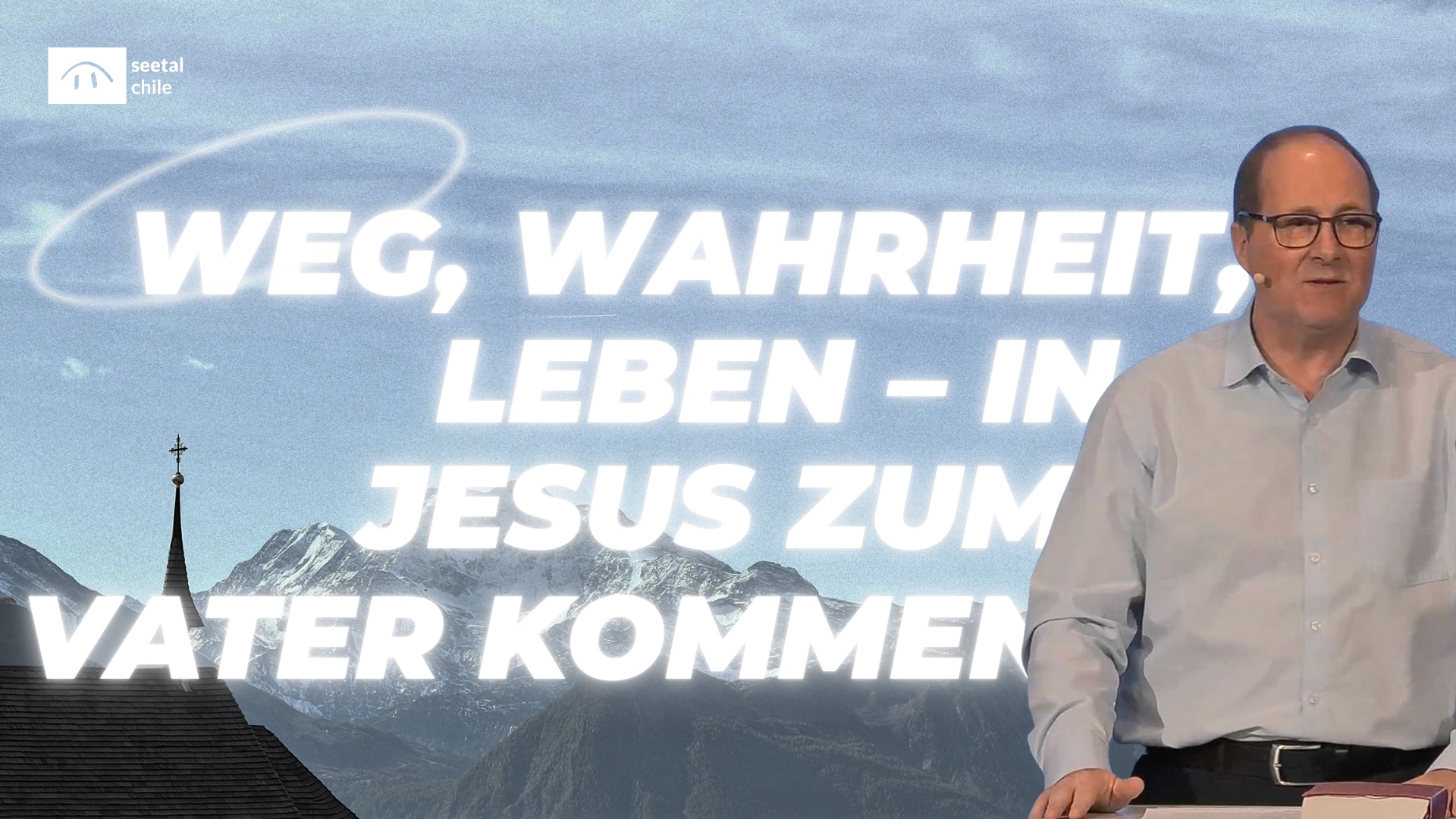Creation & Faith | Good news for all creation
Series: EIFACH muetig – with Jesus as a role model | Bible text: Colossians 1:16–17; Mark 16:15; Leviticus 25:1–23
For decades, hardly any free church had the topic of «stewardship of creation» on its radar, even though it was God’s first mandate to mankind. God loves not only people, but the whole of creation. It is also the whole of creation that longs for redemption. Perhaps that is why Jesus commands: «Go into the whole world and proclaim of all creation the Gospel!» (Mark 16:15 New Testament). Churches are places of hope with great potential to change the world.
My father-in-law was a pioneer of the green movement in Romanshorn along with other fellow campaigners. For 25 years he was president of the Romanshorn Bird and Nature Conservation Organisation and for seven years he was a cantonal councillor for the Thurgau Green Party – another pioneering role. He pursued rock-solid policies without subscribing to any left-wing or even atheistic ideology. What he couldn’t understand was that we «free churchmen» had to deal with the issue of Stewardship over creation had hardly been on his radar. And I didn’t realise why this topic was so important to him. The Christian faith is about the important things, about people, and about getting to know God personally!
A disastrous dualism
A research team from the YMCA University of Kassel has conducted a so-called Justice-Sustainability Study (Ge-Na Study) among 2561 active followers of Jesus from Germany and Switzerland. 57.4 per cent of those surveyed stated that Christianity is partly to blame for environmental problems, as it has long had no understanding of ecological concerns.
This is consistent with the experience that in the traditional free church context in which I grew up, Church and World were clearly separated. Experiencing love for Jesus was important, the world was to be avoided as a priority. I also misread perhaps the most famous sentence in the Bible for a long time. «For God has the world so much that he gave his only Son, so that everyone who believes in him may not perish but may have eternal life» (John 3:16 NLB). Through my glasses it read: «Because God loved people so much.» Today, just under a third still hold the classic evangelical position that evangelisation is more important than sustainability. It is significant that Christians who believe in the eschatological (end-time) creation of a new world tend to be less sustainable and less committed to sustainability. The idea behind this is probably that you don’t need to pay much attention to a world that will soon be destroyed anyway.
The Bible does not teach us dualism, the separation of nature and spirit and the devaluation of natural, material things. It has been shaped primarily by Greek philosophy. Many in the free church context in particular have not only grown up with a perceived «correct understanding of the Bible», but also with these dualistic glasses. I have to admit that I have learnt a very basic pattern of thought incorrectly and have read it into the Bible.
Jesus loves all of creation
For us, it is important that we take a look at the entire biblical world view. By this I mean the overall picture of creation, fall, cross, resurrection, restoration of all creation and the return of Jesus. Jesus was from the beginning. We should focus on this big picture as a frame of reference. One accent from it: the «Jesus from the beginning». Jesus (and with him the gospel) does not just begin at Christmas, not at the cross and resurrection. Jesus is one of the «we» of creation from the very beginning: «Then God said: «We want to create people in our image who are like us» «(Genesis 1:26 NLB).
In Colossians we read that He was «before all creation». The good news of Jesus Christ has its starting point in the good news that Jesus shapes the entire world out of love. «Through him, God created everything that is in heaven and on earth. He made everything that we can see and that which we cannot see, whether kings, kingdoms, rulers or authorities. Everything was created by him and for him. He was there before everything else began, and he holds all creation together» (Colossians 1:16, 17 NLB). «Through him [his Son] he created the whole universe and all that is in it» (Hebrews 1:2 NLB).
We must note that the term World is understood in the Bible in two ways. On the one hand refers to a thought pattern with corresponding behaviour that is corrupted under the influence of sin. It is characterised by self-centredness, greed and ruthlessness. John speaks about this: «For everyone who is born of God triumphs over the world. This victory is made possible by our faith: it is he who has triumphed over the world.» (1 John 5:4 New Testament). This kind of world is not to be loved, but to be overcome. In this sense, Paul says: «No longer judge yourselves by «the standards» of this world, but learn to think in a new way so that you can be changed and judge whether something is God’s will – whether it is good, whether God is pleased with it and whether it is perfect»(Romans 12:2 NLB).
On the other hand, the world is also the beloved, for whom Jesus gave himself as a whole (John 3:16). This refers to the material, visible creation. The countless galaxies, the celestial bodies, people of all ethnicities, flora and fauna as well as all microorganisms. To the same extent that a follower of Jesus should overcome worldly thought patterns – we also call this sanctification – it is important to love creation in all its facets. Both are part of following Jesus. Love for the Creator includes love for his creatures. We cannot say that we love God and at the same time be indifferent to the groaning of creation.
My father-in-law probably rightly missed this aspect of succession. I didn’t understand it through my glasses at the time. Ecology, the stewardship of creation, is not just a nice addition to following Jesus, evangelisation and sanctification, but an essential, fundamental and vital acknowledgement of Jesus and the triune God. For followers of Jesus, the preservation and creative shaping of creation is not an arbitrary option, but recognition of Jesus as God and Lord over everything.
Creation sighs
In the Bible, creation is considered from the very beginning. After each day of creation, the triune God speaks a «And it was good!» from. Man was given a special position with the task of cultivating and preserving the rest of creation. However, before he was to fulfil the task of stewardship over creation (ecology), he was given a day off, the Sabbath. With the Sabbath, God places a 6:1 rhythm in man’s life. On the Sabbath, people should interrupt their everyday lives, rest, remember God’s grace in their lives and do good. The Sabbath is also a reference to the new creation, the new heaven and the new earth. «So there is still a special rest [literally: Sabbath rest] for the people of God that lies in the future» (Hebrews 4:9 NLB).
The Sabbath is an ingenious gift from God for mankind. But not just for people, but for the whole of creation: «When you come into the land that I give you, the land itself shall also keep a sabbath to the LORD. For six years you may till your fields, prune your vineyards and reap your harvest. But in the seventh year the land shall have a sabbatical year – a rest for the LORD. During this year you are not to sow any crops or prune your vineyards» (Leviticus 25:2–4 NLB).
Even more astonishing is the institution of the year of remission. God instructed the Israelites that after 7 times 7 Sabbath years, the trumpet should be blown to announce the year of release. This meant that enslaved people and sold properties had to be returned to the original clans. It was like pressing the reset button. This prevented social differences from becoming ever greater. It was never God’s intention that a few per cent of the earth’s population should divide up almost all the wealth among themselves.
God’s instruction is aimed at the following statement: «The land must not be sold forever, because it belongs to me. You are only strangers and guests living in my land» (Leviticus 25:23 NLB). The fact that we are only guests on this earth should have an impact on our relationship with the land. Maria Pappa, the mayor of St.Gallen, advises more humility in a newspaper in view of the global political challenges: «We humans should be aware that we are guests on this earth and dependent on it – and not the other way round.» When we look at the Sabbath, tax and remission commandments in the Old Testament, it is always about justice on three levels: social, ecological and economic.
Jesus also says in the New Testament: «Go into all the world and proclaim the gospel to all creation!» (Mark 16:15 New Testament). Sustainable living, socially responsible behaviour and speaking of the cross and resurrection are equal and inseparable parts of the one gospel and always relate to the entire community of creation.
Our creation is in a bad way. Not only humans can feel pain, no, the whole of creation can. St Paul puts it like this: «For we know that all of creation groans with us until this moment, as under the pain of childbirth»(Romans 8:22 NLB). The whole of creation has suffered from greed and selfishness in this world since the fall of man. Like people, the rest of creation also needs redemption. And – just as followers of Jesus will receive a new body in the world to come, the whole of creation will be made new. There will be a new heaven and a new earth. Jesus» resurrection body was similar to his previous body. His friends still recognised him and were able to place their fingers in the stigmata. And yet this new body had completely new possibilities. Jesus appeared in closed rooms and was suddenly gone again. It will be the same with the new creation. It will bear the marks of the present world and yet be many times more glorious.
At the beginning of his ministry on this earth, Jesus referred to prophetic words from Isaiah: «I proclaim to them a year in which the Lord shows his mercy» (Luke 4:19 HFA). The Greek text makes it clear: it is a year of remission and therefore about liberation, social justice and ecological sustainability. So Jesus brings grace to people as well as to the rest of creation. A follower of Jesus is a person who has accepted this grace for himself. This has given him a new identity; he now belongs to God’s family. From this being, it is important to feel the heartbeat of God and to love all of creation with Him. Out of His power, we can be part of the solution instead of part of the problem.
Possible questions for the small groups
Read the Bible text: Genesis 25:1–23
- How were you socialised with the topic of «Faith & Creation»? What role did the topic play in your church past?
- Do you agree with the statement that ecology (stewardship of creation) is just as much a part of following Jesus as evangelism and sanctification?
- What does it mean to proclaim the gospel to all creation (Mark 16:15)?
- What do you think about the relationship between current creation and new creation? Why is it worth taking care of our world?
- Love for the Creator includes love for his creatures. How can we love the Creator and his creatures?








